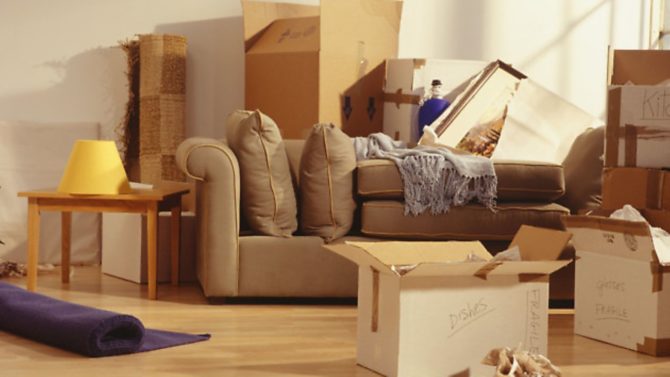Checklist: preparing for your move to France

You’ve found your dream home in France and now it’s time to start preparing to move. Follow our checklist to make sure moving all your items to France goes as smoothly as possible
1. Thoroughly examine everything you want to move
What size van will you need? What size boxes/packing crates and how many? Do you need protective wrapping like bubble wrap? Does anything need to be dismantled (large wardrobes, beds etc)? Will it all fit out of the door/down the stairs or will you have to pass it out of a window?
2. Is there anything you don’t want to take with you?
Are you planning to get rid of it or will you need to arrange storage until you can move it into your new home or get rid of it? Be aware that some items won’t be allowed into France, for example drugs and narcotics, food stuffs, dried flower arrangements, animal skins or furs, ivory etc.
3. Have you got sufficient insurance?
It is vital that your items are covered by a comprehensive insurance policy which will cover you for damage and loss on all items whether you are moving them yourself or hiring a professional removals company. This will need to cover you items while in transit and being moved into and out of each property. You will also need house and contents insurance for your new French property on the day you sign the compromis de vente so don’t forget about this.
______________________________________________________________________________________
Related articles
5 things you need to know before buying a French property
Buying property in France: the process explained
______________________________________________________________________________________
4. Check whether your lorry/van can get to each property
Can your removals lorry park in front of your current and new home? Are there any narrow lanes or other obstacles that could prevent the lorry getting to your property? Be aware that in many French villages the roads are narrow and winding! If you are in a town or city then check if there are any parking restrictions and whether you will have to get a parking permit in order to park the lorry outside your property.
5. Check access to your building
If you are moving to an apartment then you will need to check whether there is a lift in the building you can use and what the weight restriction is. Will you be able to get your sofa/fridge/bed up the stairs and through the door or will you need to dismantle them or find another way into the apartment?
6. Prepare all of your items before moving day
Don’t wait until moving day to pack your items as it will take longer than you think! Items such as fridges and washing machines will need to be disconnected, emptied and cleaned. Fragile items will need to be wrapped and packed carefully and marked as fragile. You also might have to arrange storage for your items if you are unable to move into your new property on the day you move out of your old one.
7. Work out where you want items to go in your new home and mark all of your boxes
Write on the boxes which room they are for and draw up a plan of where in your new home everything is going to go so items start in the right room and you don’t have to move everything around as you unpack. Make sure you put essential items somewhere that are easy to access so you can make a cup of tea and eat dinner off a plate!
______________________________________________________________________________________
Related articles
______________________________________________________________________________________
8. Choose your removals company carefully
If you are using a professional removals firm then ideally contact them 3-4 months before your planned moving day so you can obtain quotes and sort everything out well in advance. If possible choose a firm based on personal recommendations but if not then look out for firms which are members of the British Association of Removers Overseas and the Fédération Internationale des Démenageurs which will guarantee a high-quality service and somewhere to turn if things do go wrong. Ideally get quotes from several firms before you settle on one.
You will need a French bank account to set up your utilities so don’t wait until you have moved to do this.
10. Set up your utilities as soon as possible
If possible, ask the owner or agent to keep the utilities (gas, electricity and water) running at your new property so you just have to change the name on the account rather than arranging for them all to be reconnected. Change the name on the day you sign for the property so they are all in place when you move. You will need the previous owner’s full name and account details (or tenant if it was in their name). You will also need to set up telephone and internet connection and don’t forget to arrange for your post to be redirected to your new address.
Share to: Facebook Twitter LinkedIn Email


